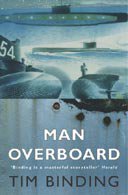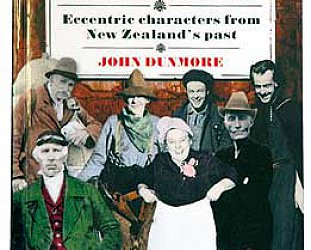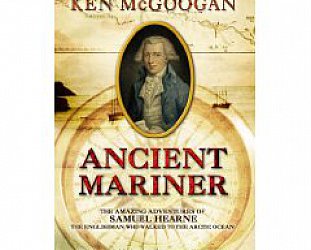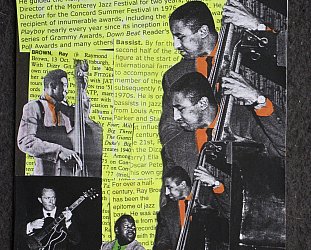Graham Reid | | 1 min read

Novels based on historical characters are always fraught: one weakness in important detail or tone of the period and the whole structure collapses. Binding’s novel therefore treads in dangerous waters: it is based on the 1956 disappearance of Commander Lionel Crabb, a British war hero and frogman who was last seen near Portsmouth where a warship carrying Soviet premier Khrushchev had berthed.
At the height of the Cold War it was suspected that Crabb, who was allegedly on a reconnaissance mission for MI6, had been grabbed by the Soviets and secreted back to Russia. Others said he may have defected, or was murdered by the British who suspected this and wanted to avoid embarrassment given his much decorated career.
Binding’s novel imagines an old and reflective Crabb -- living under another identity in a remote Russian rest home -- reconsidering his life, but this becomes much more than a fanciful recreation of a possible scenario (which is slowly revealed by Binding peeling away layers).
Binding’s gift is in creating a real character in Crabb, a man who seemed to be only entirely comfortable when he found his calling: under the ocean and away from the world.
The loss of a woman friend when her plane crashes into the sea after take-off from Gibraltar prompts him to consider how he keeps diving as if to find her, and that later women were too much flesh and blood when all he was looking for was something cold, lifeless and eternal. Tellingly he loves Venice.
Later he chats with an affable Yuri Gagarin and observes the astronaut has seen the world from without, and he has seen it from within, but that you cannot live in either place.
“I thought the day would come when I would take a deep breath, jump in the ocean and never come out . . . dive down forever . . . gliding to the floor of a perfectly tranquil sea. It would never end and neither would I. That’s what it felt like up there, wasn’t it, immortality tugging at your sleeves?”
This is a compelling novel sensitively grounded in its period and with attention paid to social mores and language.
The actual fate of Crabb may never be known -- recent evidence suggests he may have been murdered to prevent his defection -- but this story creates a sense of a troubled man in a troubling time, evokes an Englishness that has long passed, and creates an emblematic figure who at last found some peace after a life in which he sacrificed everything to causes and beliefs he ultimately found wanting.







post a comment